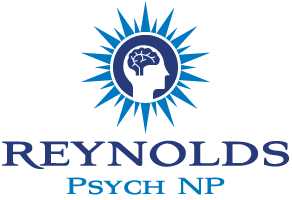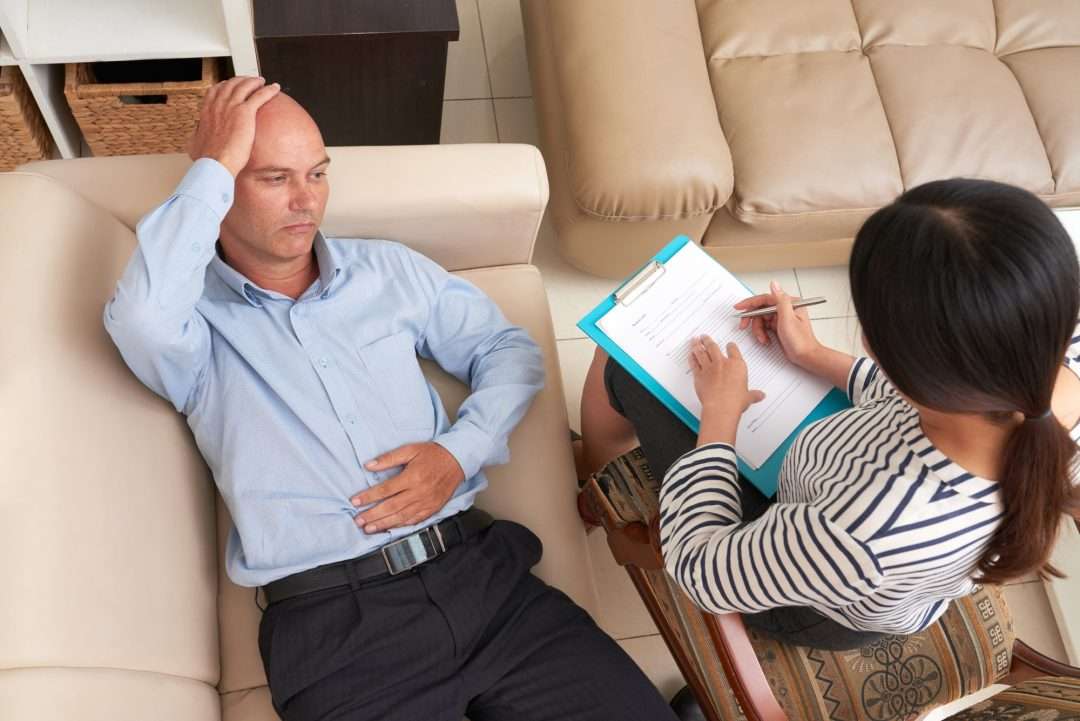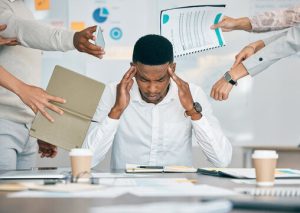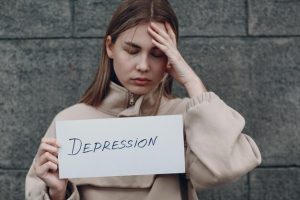Mental health problems may disrupt a person’s regular life, social connections, work tasks, and general happiness. Out of all the discussed mental health problems, anxiety and depression are the most common. Despite sometimes having similar symptoms, they are different in numerous other areas. In this guide, we highlight the difference between anxiety and depression to provide information that helps you or someone close to you find suitable help.
The first step to clarity is an Initial Psychiatric Evaluation. The evaluation lets the psychiatrists determine your symptoms and select a treatment that works best for you.
Anxiety vs Depression Difference
Many people frequently experience anxiety and depression. The difference between anxiety and depression is that when someone is depressed, they can’t enjoy things that they once found enjoyable. Many people who have depression report feelings of worthlessness, hopelessness, and differences in their appetite or sleep schedule.
Anxiety, on the other hand, causes excessive worry about simple things and can make someone restless and always on guard. A person may experience a fast heartbeat, tight muscles, or difficulties with their digestion. If you suffer from either of these conditions, it is serious, but with supportive care, you are not alone.
Symptoms of Anxiety
Signs and symptoms of anxiety are:
- Too much concern or panic over things that are usually not serious.
- Not being able to relax because you are always restless or feel tense.
- Irritability and experiencing trouble sleeping because of frequent thoughts.
- Physical symptoms like a quick heartbeat, sweating, shaking, or a disturbed stomach.
- Feeling easily startled and having panic attacks.
Symptoms of Depression
Signs and symptoms of depression are:
- Living with sadness, emptiness, or hopelessness almost all day, on most days of the week.
- A lack of enjoyment in one’s favorite activities or occupation.
- Fatigue or sluggishness that does not go away after resting.
- Appetite swings or problems sleeping (either sleeping too much or not sleeping at all).
- Conversations of feeling that they are worth nothing or are guilty.
Different people will describe a number of these symptoms. There is often a very subtle difference in anxiety and depression; anxious feelings lead to energy and muscle tension, while depressive feelings lead to less energy and muscle activity. Anxiety is often future-oriented fear, and depression is often past concerns or feelings of helplessness. Recognizing the differences can help both you and your health care provider choose the right conceptual approach.
The Difference Between Anxiety and Depression
| Anxiety Symptoms | Depression Symptoms |
| Persistent worrying or fear | Persistent sadness or emptiness |
| Feeling restless or irritable | Loss of interest or pleasure in activities |
| Racing thoughts or panic attacks | Fatigue or low energy |
| Muscle tension, headaches | Changes in appetite or weight |
| Sleep problems (insomnia) | Sleep problems (oversleeping or insomnia) |
| Difficulty concentrating due to worry | Difficulty concentrating due to negative thoughts |
The table shows that symptoms can vary from person to person. As there is a small difference between anxiety and depression, an accurate assessment is necessary.
Getting the Right Help
Everyone develops these symptoms, so relax. Everyone becomes better with Individual Psychotherapy, which is when you speak with a therapist alone to understand how to deal with and cope with the things that are occurring with you. Cognitive-behavioral therapy (CBT) is also very effective for anxiety and depression, as studies say. During therapy sessions, therapists allow you to express your emotions and understand coping mechanisms.
Psychiatrists manage medications according to the difference between anxiety and depression symptoms. The use of an antidepressant may be helpful for many patients by reducing their level of anxiety or depression. Decisions to manage medications are made by therapists in consultation with you, integrating current research with your own needs.
Other treatments, such as a change in lifestyle, stress-reducing methods (mindfulness), and integrative treatments, are also included in a comprehensive treatment plan. Telehealth is convenient for distant medical treatment. With telehealth, you can communicate with your provider at home, which is helpful for someone who has a hard time going out due to depression or anxiety.
Treatments at a Glance
Treatments that are effective and based on research, and the difference between anxiety and depression include:
- Psychotherapy (Talk Therapy): Individual therapy sessions (e.g., CBT) tailored to your needs.
- Lifestyle & Self-Care: Exercise, eat healthy foods, sleep properly, and make sure to practice mindfulness.
- Medication Management: Psychiatrists may manage antidepressants (like SSRIs) or different anti-anxiety medications to alleviate symptoms.
Real Patient Story
Let’s take a look at Sarah’s case as an example. She was exhausted and sad a lot, often crying without any reason, and her worries would increase and decrease. After reviewing the case, the team discovered that she had depression as well as an anxiety disorder.
As a result, it can be hard to realize the anxiety depression difference due to this overlap, unless a mental health professional examines the person. In her therapy, Sarah developed ways to calm herself (deep breathing and thinking differently) and followed a medicine plan designed for her. Support such as exercise, healthy eating, and mindfulness made her feel optimistic over time. Over time, the fog of depression lifted, and her anxious thoughts became manageable again.
Final Verdict
Understanding the difference between anxiety and depression can assist you in getting help. Care must be compassionate, evidence-driven, and focused on the person as a whole, rather than as a set of symptoms. They guide and manage you in building strength and re-establishment of your health throughout therapy, alongside the support of lifestyle changes.
You will have access and support from mental health care providers (in person or remotely) who are with you every step of the way. Do not hesitate to start taking action today should you require help. You can count on professionals like Reynolds Psych NP who listen and customize a schedule for you. Support is important for you on your road to recovery.
Schedule an appointment by calling the mental health specialists at (262) 999-7350 or send an email to [email protected] so that you can have a Psychiatric Evaluation or a consultation to bring your life back to normal.
Frequently Asked Questions
What is the difference between anxiety and depression?
While many people may have symptoms of anxiety and depression (such as sleep problems and concentration), their mood and energy are different. With anxiety, the worry and tension don’t resolve, but with depression, there is sadness and a lack of energy. A professional evaluation will help you find out the nature of your symptoms.
Can I have both anxiety and depression at the same time?
Yes. You might experience both at the same time. Almost every two out of five people with depression also have an anxiety disorder. When both disorders occur at the same time, the same treatment plan should manage both sets of symptoms.
How are anxiety and depression treated?
A combination of counseling or CBT and, if required, medication is used to treat both conditions. Each person’s plan can vary, but we rely on evidence-based approaches to reduce symptoms and improve daily functioning.
What is the key benefit of telehealth?
Telehealth offers an easy way to get medical care from a distance. The main advantage is the convenience; you can visit a Psychiatrists in the comfort of your home. With regular sessions, therapy becomes more effective and may help you recover better.
When should I seek professional help for anxiety or depression?
Whenever anxiety or depression starts affecting things that matter to you every day (carrying out duties, sleeping well, and personal relationships), you should talk to someone and get help. It’s best to work on your strategy before something goes wrong. If treatment begins at an early stage, it often results in better recovery and stops symptoms from getting worse.







